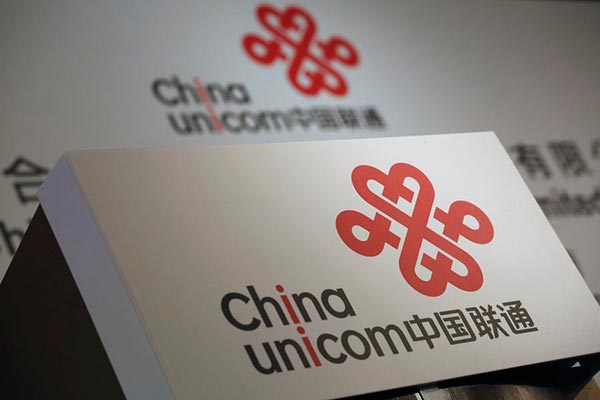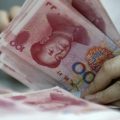
China Securities Regulatory Commission (CSRC) said on Sunday night it approved the non-public offering of shares in China Unicom’s mixed-ownership reform plan and would handle it as a special case, according to a report by China Securities Journal.
China Unicom can formulate its own non-public offering of shares plan in accordance with the old rules of the refinancing system that were not revised until Feb 17 this year, CSRC said.
On the same day earlier, China Unicom disclosed its mixed-ownership reform plan, announcing it will transfer old stocks, grant employee incentive shares as well as sell shares to strategic investors.
The company will issue 9 billion private shares to strategic investors to raise no more than 62 billion yuan ($9.29 billion), transfer 1.9 billion old shares priced at 13 billion yuan to the structural reform fund and grant no more than 848 million restricted stocks to core employees to raise 3 billion yuan.
The total consideration of the above transaction will not exceed 78 billion yuan, according to the report.
Shares of China Unicom rose by 10 percent, the daily trading limit, to 8.22 yuan per share right after trading resumed Monday morning after months of suspension.
On August 16, China Unicom once published two filings of mixed-ownership reform on the website of the Shanghai Stock Exchange and withdrew them that night.
Analysts said it was because the company’s non-public offering of shares plan, the pricing of the new shares and investors’ shareholdings might have contradicted February’s newly-revised regulations, according to reports by China Securities Journal and caixin.com.
The revised rules require the number of shares issued shall not exceed 20 percent of the total equity base before the issue. However, in China Unicom’s plan, the proportion reaches 42.63 percent, China Securities Journal reported.
CSRC said on its announcement Sunday it has recognized that China Unicom’s mixed-ownership reform is significant for laying a foundation for and deepening the reform of State-owned enterprises.
The company’s strategic investors include domestic tech titan Tencent Holdings Ltd, Alibaba Group Holding Ltd, Baidu Inc and JD.com Inc and Suning Commerce Group Co Ltd.


